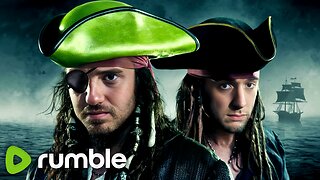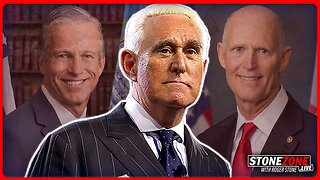Premium Only Content

Driving for COCA-COLA - Employee Drama and Toxic Culture
Coca-Cola's origins trace back to 1886 when Dr. John S. Pemberton, a pharmacist in Atlanta, Georgia, created a caramel-colored syrup. This syrup, when mixed with carbonated water, gave birth to a new beverage, initially sold at Jacobs' Pharmacy. Despite its current reputation as a soft drink, Coca-Cola was initially marketed as a medicinal tonic, promising health benefits such as headache relief and increased energy.
Expansion Under Asa Candler:
The Coca-Cola brand experienced significant growth after Asa Candler, a businessman, acquired the formula and rights in 1888. Candler's marketing strategies were instrumental in establishing Coca-Cola as a household name across the United States. This period saw the proliferation of innovative advertising and promotional campaigns, including distributing free drink coupons and branded merchandise.
Bottling Innovation and Wider Reach:
Coca-Cola's decision to bottle its product, starting in 1894, marked a major expansion of its market reach. The iconic contour bottle, introduced in 1916, became a symbol of the brand. Bottling allowed Coca-Cola to be sold far beyond Atlanta, reaching a national and, eventually, an international audience.
Global Expansion in the 20th Century:
World War II was a crucial period for Coca-Cola's global expansion. The company's commitment to supply American troops with Coca-Cola at a fixed price helped establish its presence in new international markets. Post-war, this led to a significant increase in global consumption and recognition of the brand.
Product Evolution and Market Challenges:
Throughout the 20th century, Coca-Cola diversified its product range, adapting to changing market trends and consumer preferences. The company faced notable challenges, including the controversial introduction of New Coke in 1985. This reformulation led to public outcry, and the swift reinstatement of the original formula highlighted the deep connection consumers had with the brand.
Environmental Initiatives and Modern Strategies:
In recent years, Coca-Cola has faced scrutiny regarding its environmental impact, particularly concerning water usage and plastic waste. In response, the company has launched various sustainability initiatives, aiming to reduce its ecological footprint through water conservation efforts, recycling programs, and commitments to decrease greenhouse gas emissions.
Cultural and Social Impact:
Coca-Cola's influence extends beyond the beverage industry into cultural and social realms. The brand's advertising campaigns, especially those around holidays, have become part of popular culture. The company's global reach and marketing have also made it a symbol of American culture and consumerism.
Current Status:
Today, Coca-Cola remains a dominant force in the global beverage market. While it continues to face challenges, including health concerns over sugary drinks and environmental issues, the brand maintains a strong presence worldwide, adapting to market trends and evolving consumer preferences.
-
 59:17
59:17
Matt Kohrs
11 hours agoRumble's Q3 Recap & What's Next w/ CEO Chris Pavlovski
90.1K30 -
 1:43:47
1:43:47
Adam Does Movies
15 hours ago $25.85 earnedGladiator II Early Reviews + Tom Cruise Stans Glen Powell + Freddy Krueger - Movie News LIVE!
78K5 -
 2:24:03
2:24:03
WeAreChange
11 hours agoTrump Creates Department Of Government Efficiency With Elon And Vivek!
140K62 -
 2:10:32
2:10:32
Slightly Offensive
13 hours ago $29.52 earnedGET READY: Civil Unrests ERUPTS As Trump Resistance 2.0 EMERGES
77.4K52 -
 59:40
59:40
The StoneZONE with Roger Stone
9 hours agoShowdown in the Republican US Senate Caucus - RINOs Seek to Undermine Trump | The StoneZONE
74.3K45 -
 1:26:29
1:26:29
I_Came_With_Fire_Podcast
14 hours agoSpecial Episode: Frank Luna with Smokeless Vets
46.6K3 -
 4:16:31
4:16:31
Tundra Gaming Live
10 hours ago $1.75 earnedFormer Air Force Maintainer (Weapons) Hits The Grind For The F-16c
31.4K -
 1:07:06
1:07:06
The Officer Tatum
11 hours agoLIVE MSNBC, CNN IMPLODE As Trump BUILDS DREAM TEAM!
92.9K195 -
 17:42
17:42
DeVory Darkins
2 days agoCNN Dana Bash LOSES HER MIND After BRUTAL Reality Check
60.5K97 -
 2:01:49
2:01:49
Robert Gouveia
12 hours agoTrump Judge CAVES; Jack Gets SUED; J6 Prosecutions Continue! Elon Rigged It!
65.6K55